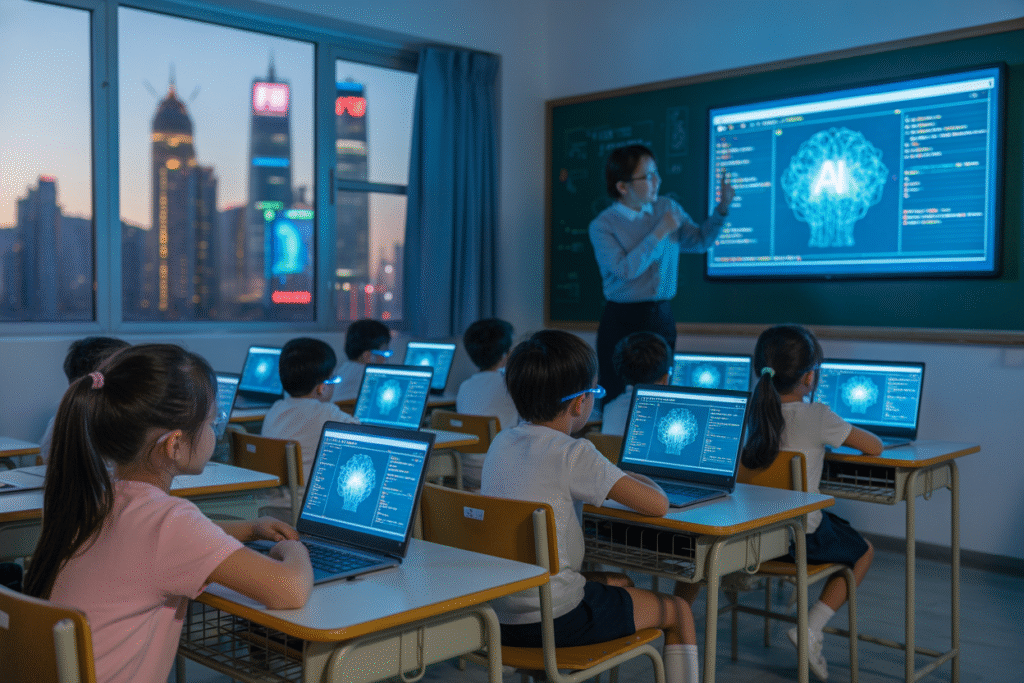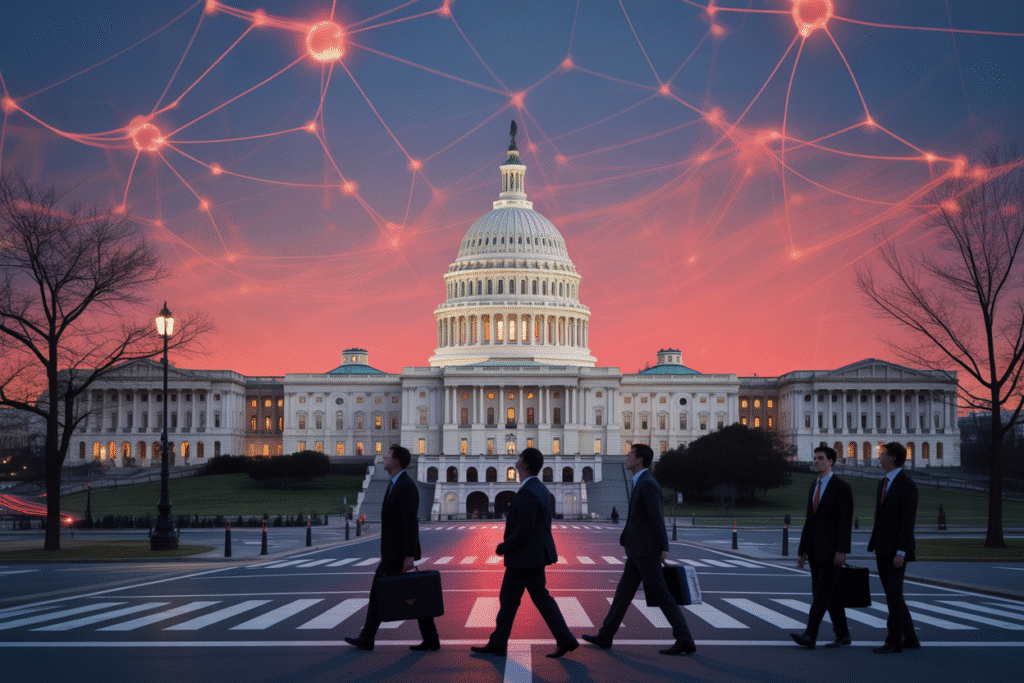Beijing just made AI classes compulsory from first grade—sparking cheers, fears, and a worldwide tech race.
Imagine your eight-year-old coming home with homework on neural networks instead of multiplication tables. That future arrived last week when China told every schoolchild to study artificial intelligence. The announcement ricocheted across classrooms, boardrooms, and war rooms from Washington to Warsaw. Why the uproar? Because this isn’t just a curriculum tweak—it’s a geopolitical chess piece that could tilt the balance of global power.
The Mandate: Coding Before Cursive
Starting this September, Chinese pupils as young as six will swap finger-painting for Python. The Ministry of Education’s new guidelines weave AI ethics, robotics, and data literacy into math, science, and even art classes.
Teachers received a 300-page playbook overnight. One Shanghai educator told me she’s now expected to explain facial-recognition bias between snack breaks. The goal? Create 100 million junior AI engineers by 2035.
Parents are split. In Shenzhen, I watched a mother cheer when her daughter debugged a toy drone. In rural Gansu, a father worried the same lesson teaches kids to spy on neighbors. The policy arrives as China’s tech giants—Alibaba, Tencent, ByteDance—pledge free cloud credits and teaching bots.
Western diplomats see Trojan-horse software. Chinese officials call it economic survival. Either way, the curriculum is live-streamed; every lesson is a data point feeding back to Beijing’s servers.
The Backlash: Classrooms or Control Rooms?
Critics fear these kids won’t just learn AI—they’ll become it. Human-rights groups warn that early indoctrination could normalize state surveillance. Picture a generation that thinks monitoring classmates for ‘social harmony’ is homework.
Tech investors outside China smell opportunity and panic in equal measure. Silicon Valley VCs whisper that America now has a twelve-year skills gap. European ministers scramble to draft counter-policies before their own kids demand DeepMind bedtime stories.
Yet some educators argue the opposite: early ethics training might inoculate students against misuse. If you teach a ten-year-old why biased algorithms hurt grandma’s loan application, you might raise rebels instead of robots.
The loudest dissent comes from teachers unprepared for the pivot. One Beijing primary school hired a former Baidu engineer who quit after a week—turns out explaining gradient descent to second-graders is harder than optimizing ad clicks.
The Ripple Effect: A World Rewriting Its Syllabus
Within 48 hours, #AIHomework trended worldwide. TikTok clips showed American kids asking why they can’t build chatbots during recess. School districts from Toronto to Tel Aviv rushed emergency meetings.
Policy wonks predict three scenarios. Best case: healthy competition drives global STEM investment and safer AI. Middle case: a bifurcated internet where Chinese and Western teens speak different algorithmic dialects. Worst case: an arms race of teenage hackers trained by rival superpowers.
Corporations smell profit. Pearson is already translating China’s textbooks. Google for Education quietly piloted an AI ethics game in 12 U.S. districts. Meanwhile, UNESCO released hurried guidelines urging member states to balance innovation with privacy.
Parents everywhere face the same bedtime question: Do I hand my kid a tablet loaded with code or confiscate it until college? The answer may decide who writes the next century’s software—and whose values are baked into it.


